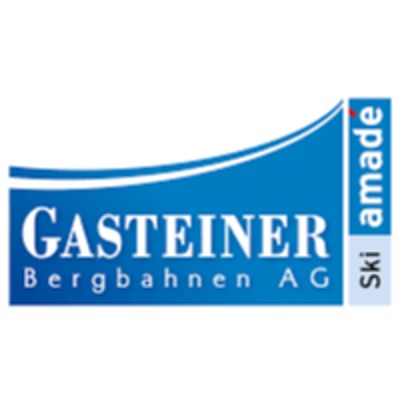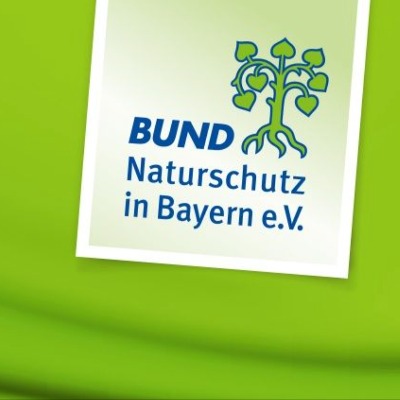General Assembly Of Bergbahnen Graubunden Opens The Winter Season For The Industry

The general assembly of Bergbahnen Graubünden (BBGR) in Arosa opens the winter season for the mountain railway industry
President Martin Hug called on the companies at the General Assembly of Bergbahnen Graubünden (BBGR) in Arosa to prepare for various Covid scenarios. With the strategy of controlled opening, Graubünden has a track record of success that will hopefully also come into play this winter.
The Graubünden Corona strategy for tourism consists of protection concepts, the test of fensive in companies and vaccinations. The mountain railways were the partners from the very beginning during the operational tests for the canton. Bergbahnen Graubünden (BBGR) compared the Graubünden strategy with the lockdown strategy in Tyrol and South Tyrol after last winter. It became clear that the balanced Graubünden strategy of controlled opening was able to prevent economic damage of CHF 1 billion. The strategy was also goal-oriented from a health point of view: the incidences were 20 percent below the Tyrolean and there were 38 percent fewer snow sports accidents. Martin Hug motivated the assembled mountain railway companies to remain agile and think in scenarios. BBGR endeavors proactively incorporate the interests of the industry in cantonal politics and propose appropriate implementation rules. Berno Stoffel, Director of Seilbahnen Schweiz (SBS), confirmed this position in the current negotiations between the national association and the federal government.
The Graubünden protection concept is welcomed
Bergbahnen Graubünden (BBGR) welcomes the protection concept presented yesterday by the canton of Graubünden for next winter. President Martin Hug: "After the intensive preparatory work and the good booking status, it is important to avert economic damage and the endangerment of livelihoods." Tourism and the authorities in Graubünden showed last winter how this works even with increasing numbers of infections. The mountain railways in Graubünden are the engine of winter tourism and, based on the successful findings of last season, are once again ready to make their contribution to overcoming the crisis. The aim must be to prevent the health system from being overburdened and at the same time to enable winter tourism.
Snow sports are a Swiss cultural asset
Around three quarters of the Graubünden mountain railway guests last winter were Swiss. According to Martin Hug, you have shown that snow sports are an emotional cultural asset in Switzerland. Especially in the corona crisis, the experience of nature, exercise in the fresh air and a change from everyday life are necessary balm for the soul. According to scientific knowledge, Covid-19 is an indoor pandemic. In addition, the mountain railways successfully implemented extensive protection concepts last winter. That is why BBGR continues to demand equality with public transport from the federal government. Martin Hug: "The 3G rule may only be applied if there is otherwise a threat of a lockdown". The snow sports activities take place outside and the same rules should apply to closed transport cabins as in public transport. Especially since the trips with the mountain railway usually lasted less than 15 minutes. It is incomprehensible when cross-country skiers: inside without 3G, arrive in a crowded bus, while snow sports enthusiasts on the mountain need certificates. Economic restrictions and unequal treatment are to be avoided unless the national health system is threatened with overload.
The current revision of the Spatial Planning Act (RPG2) addresses building outside the construction zone and therefore also affects the Graubünden mountain railway companies. For this, three elements are relevant: the stabilization goal wants to limit the number of buildings and soil sealing. The demolition bonus is intended to reward demolition without replacing new buildings. The planning and compensation approach would like to allow the innovative tourist use in one area, if this is compensated in another area. According to Councillor Marcus Caduff, the government does not reject the elements, but the overly complicated provisions of the stabilization target and the planning and compensation approach. In the case of the termination bonus, the federal government must also contribute more to the financing. Overall, government councillor Marcus Caduff calls on the federal government, when revising the Spatial Planning Act, to ensure that tourism and mountain agriculture, as well as industrial zones and agriculture in the area, are equally long.
Marcus Caduff: “In the normal industrial zones there is a building permit because the building or system conforms to the zone. Under the same conditions, this should also be possible for tourist buildings and facilities outside the construction zone. ”The Grisons economics director explained that leisure or tourist zones and paths laid out along usage plans should therefore be excluded from the stabilization goal and from the planning and compensation approach. When revising the Spatial Planning Act, to ensure that there is an equal split between tourism and mountain agriculture, as well as industrial zones and agriculture in the area.
Mountain railways promote year-round tickets
Bergbahnen Graubünden (BBGR) replaced the SnowPass for winter with the annual subscription graubündenCARD in spring 2020. Because of the pandemic, sales of the first edition collapsed by 21 percent. According to BBGR managing director Marcus Gschwend, the current sales figures have almost reached the previous level of the SnowPass and are strengthening the Graubünden mountain railways' strategy of promoting year-round availability. Thanks to the cooperation with the canton and the Graubündner Kantonalbank, the # gkb2020 anniversary campaign was implemented, which also supported the positive development. Two-thirds of the annual tickets are sold in Graubünden, where the majority of tickets are sold in the Graubünden Rhine Valley. In eastern Switzerland in particular, the graubündenCARD should open up even more potential in the future.
As one of the first non-glacier ski areas in the Alps, the Diavolezza was able to start skiing on October 16 thanks to snow farming and snow-making. The snowfall and temperatures in recent weeks made it possible to make technical snowmaking, so that Arosa-Lenzerheide, Davos Parsenn and Jakobshorn, Laax and the Andermatt-Sedrun ski arena have already opened parts of their ski areas. This weekend, with Samnaun - unfortunately, for known reasons, currently without Ischgl -, the Corviglia and the Corvatsch, three more important ski areas are now starting the winter season. The remaining ski areas will follow in the next few weeks.
Board members confirmed
Mario Davatz for small and medium-sized enterprises (KMS-GR) and the Central Region and Vidal Schertenleib for the Davos region were confirmed for a further term of office on the Executive Board. Mario Davatz is director of Bergbahnen Grüsch-Danusa AG. Vidal Schertenleib is a member of the board of directors and division manager of Davos Klosters Bergbahnen AG. The other board members are President Martin Hug (owner and managing director enmira GmbH, municipality president Flims), vice-president Philipp Holenstein (CEO Arosa Bergbahnen AG), Markus Good (managing director Bergbahnen Obersaxen-Mundaun) and Markus Moser (CEO Corvatsch AG & Diavolezza Lagalb AG). The annual accounts of Bergbahnen Graubünden closed with a small deficit of CHF 11,000. Expenses of CHF 90,000 for the # gkb2020 anniversary campaign were taken into account, which generated a benefit of CHF 700,000 for the mountain railway companies. The provisions of CHF 160,000 were not required in the financial year.
Promotion of young talent with Generation Z
Recruiting skilled workers in tourism is proving to be extremely difficult this winter. And not only on the mountain, but also in the valley. That is why the participants of the General Assembly got tips the evening before on how to get Generation Z, born between 1997 and 2010, enthusiastic about the industry. Michèle Ségouin and Fabian Gerber from Breiterbildung emphasized that the young people needed a jointly defined structure and constructive feedback. Diversity, playful and digital learning as well as conveying the meaningfulness of the tasks are also in demand. The trainers are thus more helpers and not leaders. Training needs a high priority and resources in the company in order to respond to the needs of young people.
Facts and figures from the annual report
In the current annual report, the Graubünden Mountain Railways Association (BBGR) looks back on the last Corona winter 2020/21 and the Corona summer 2020. In the summer, many new and increasingly younger guests could be welcomed to Graubünden with the nearby summer resort in the mountains. Even so, only 8.1 percent of traffic revenue comes from the summer. The winter business thus finances the strategic objective of “strengthening the summer”. The Graubünden mountain railways invested an average of 115 million annually in the ten years before the corona crisis. In 2019/20 it was as much as 130.2 million. Despite the aggravating corona conditions, most of the mountain railways were able to cover the operating costs in the last financial year. With 25 percent depreciation / provisions, the industry is very investment-intensive. While operating income stagnated or fell as a result of the pandemic, expenses increased. The investments and depreciation required for operations are therefore at risk. According to President Martin Hug, additional stimulus and start-up programs are needed by the federal government and the canton. This is the only way to keep the value-added motor mountain railways internationally competitive. In 2019/20 the mountain railways in Grau offered 4,373 jobs in winter and 1,538 in summer.
They carried 6.8 million guests and generated a transport turnover of 207 million. 72.9 percent are generated by seven large companies. 19.8 percent of 11 medium-sized companies and 7.3 percent of 33 smaller companies. According to President Martin Hug, additional stimulus and start-up programs are needed by the federal government and the canton.
This is the only way to keep the value-added motor mountain railways internationally competitive. In 2019/20 the mountain railways in Grau offered 4,373 jobs in winter and 1,538 in summer. They carried 6.8 million guests and generated a transport turnover of 207 million. 72.9 percent are generated by seven large companies. 19.8 percent of 11 medium-sized companies and 7.3 percent of 33 smaller companies.













